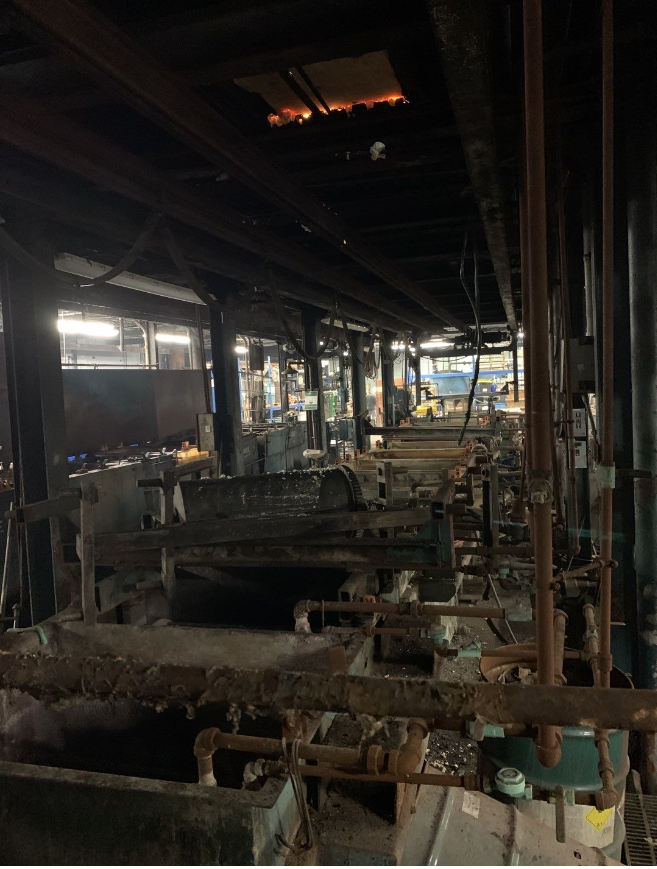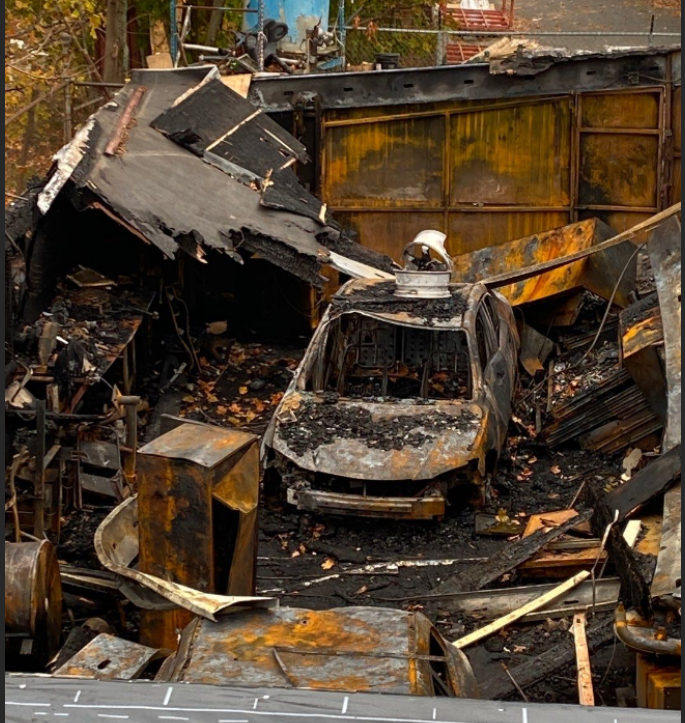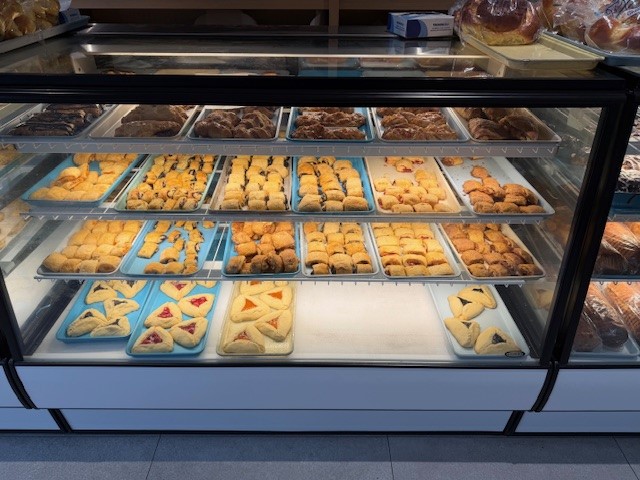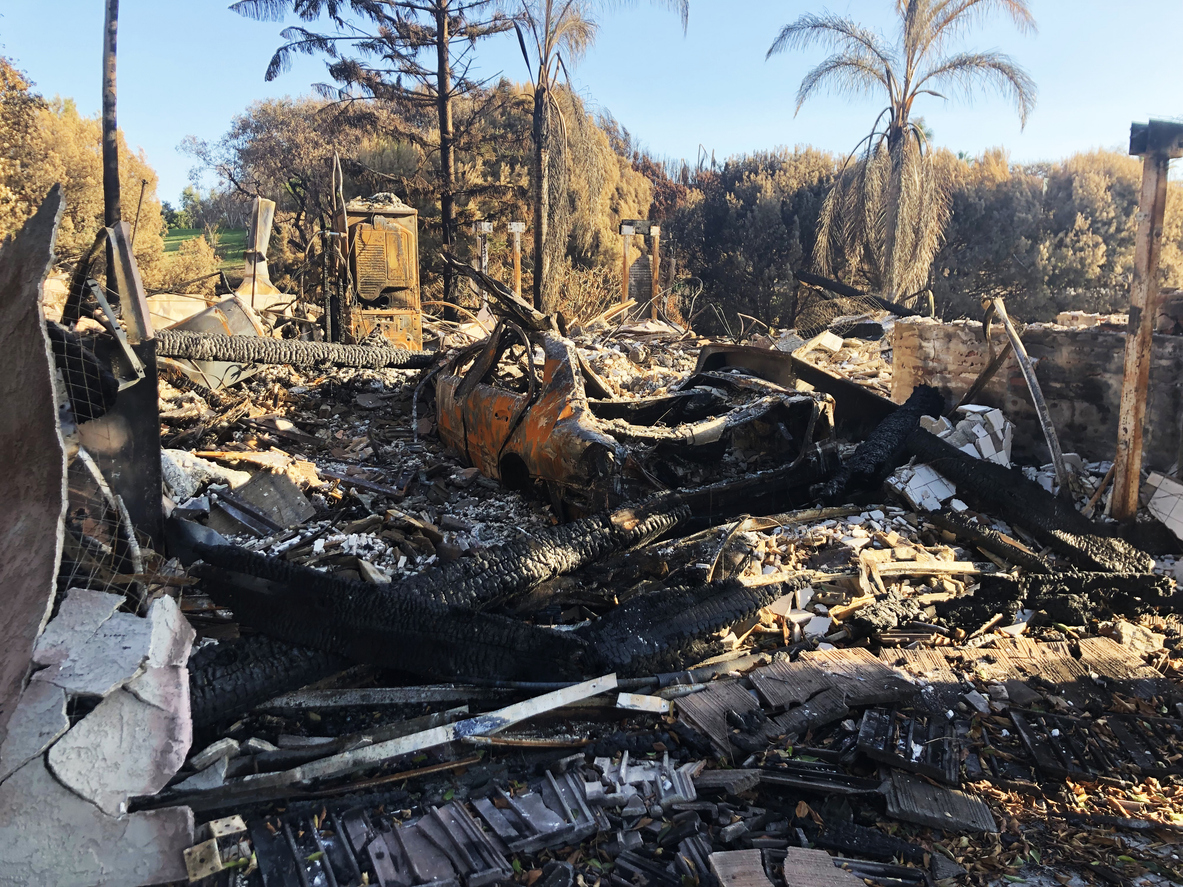Acton Metal Processing Corp., a specialty metal finishing job shop, has been providing superior quality and service since 1960 and is a recognized industry leader in the application of black coatings on metal. On the morning of November 6, 2019, Acton Metal experienced something new for this long-standing business: a 3-alarm building fire in its facility in Waltham, MA.
SMW worked with Acton Metal on the company’s insurance claim from the fire. We spoke with Todd Walsh, Vice President of Acton Metal, about the experience of going through this challenging process.
SMW: Tell us about the fire and how it started.
Todd: We open the shop at 7:00am, and at around 7:20am I heard chaos. Guys were passing fire extinguishers around, trying to put out a fire that started in a waste-oil heater. This was in the car mechanic’s space located behind our shop. It was probably the first time that season they had lit the heater, and it somehow caught fire. It was obvious that it was getting out of control really fast. By the time the fire department was called, the fire was coming through the double doors and into Acton Metal’s space. Within an hour, 75 firefighters were there. Adam Swerling was one of the first guys on the scene. Firefighters had to work until around 3pm to get it under control.
SMW: How bad was the damage?
Todd: Remarkably, it didn’t seem like the Acton Metal portion of the building suffered that much damage. We were separate from where the fire started. Being naïve, I was thinking, “Oh, we’ll only be out of our space for just a few days…” Here it is in 2020, 1 year later – and we’re opening up again in a few days. Luckily, SMW really helped us manage those expectations. Mindi Labella explained to me that these things never go as fast as property owners think they will and should.
SMW: How did the insurance process unfold?
Todd: Adam was there with my insurance agent. There were about 12 other public adjusters around – they were swarming like bees. Adam was just very professional and low key – more like an advisor than anything else. He explained the process and suggested helpful tips. There was no pressure from SMW – just solutions. Adam helped get the shop boarded up for the night, for example. He arranged to get a company out right away to help with that.
SMW: What were some of the first thoughts you had in those early stages?
Todd: I was grateful that everyone was out. That was my first thing. We’re all family here – 80 percent of our staff are actually related to each other. Then I wondered about our customers. We didn’t want any of them to have any disruption in service or anything. Initially, I thought the damage would primarily be limited to the roofing, electrical – that kind of thing. But then it just snowballed – we had a huge amount of smoke damage. The insurance estimator came out and identified what needed to be remedied. At first, I thought we might have been looking at about $100K in damage – but that ended up not being the case!
SMW: At what point did reality set in?
Todd: It was really an ongoing adjustment period over the course of several months. The claim was complicated because the landlord was separate from the operating company, so there were different insurance policies involved. SMW had to switch things around and work with each one individually. We’re in business today only because SMW did such a great job.
SMW: You kept most employees while closed. How helpful was this to operations?
Todd: We’re a really specialized industry. Our employees aren’t everyday laborers. Each one has 12 years minimum of experience – and 20+ years is an average of length of employment for us. They’re all highly trained operators, and we all wear multiple hats. We simply couldn’t afford to lose anyone.
SMW: You mentioned that you’re in a specialized industry. What exactly do you produce?
Todd: We produce black oxide, manganese phosphate and other metal finishes. It’s all conversion coatings, like a protective coating, which penetrates the steel itself. Making it involves an entire process of chemical dips in various tanks. It’s mostly for rust prevention. It can also serve as a sub-material for paint, etc., to enhance steel properties.
SMW: What steps did you take to minimize disruption for your customers?
Todd: We decided to keep our offices open full-time so we would be fully available to our customers. That way, we could answer questions about existing or upcoming orders, or give referrals as needed. But keeping a presence was key. We were able to do some subcontracting – we sent some parts to other suppliers. Our customers really wanted us to be the ones to sign on the dotted line.
SMW: What did you do to get back in business?
Todd: We pretty much gutted the place and redid everything – electrical, equipment rewiring, and repurchasing components. The whole roof was redone. We rebuilt all the walls so they’d be up to code – metal studs, concrete block, and insulation. We installed a new fire sprinkler system and a new fire alarm system throughout the entire building. Monitoring for that is being done through a central station – it ties directly into the fire department. We removed the back space, which was occupied by the tenant who started the fire, so that’s totally gone. We don’t have the time to take that on.
SMW: What did SMW do to help the process?
Todd: I was happy letting Mindi (Labella) and Bryan (Holtzman) handle the claim and tell me what to expect for recovery from the insurance company – for both the building and the business. Hiring a general contractor was tough – I definitely couldn’t have done that without a ballpark budget. SMW helped with that and with the Business Interruption (BI). The BI assistance from Mindi was crucial, because my insurance company wasn’t helpful with that. Our insurance company only paid out at approximately $.60/dollar for our BI coverage. I didn’t understand that. Nobody educated us about that. Why didn’t they flag that disconnect? Now I tell other businesses: If you’re under-insured, and a loss happens, you won’t be fully covered. That’s a disappointment I have with my insurance carrier and with my agent. I feel like that should have been brought to our attention.

SMW: What would you do differently if you had a chance?
Todd: I would have increased the BI coverage to reflect our sales and growth rate. We have now done that. And I would increase the building insurance. There were things on that side – e.g., cleaning and how much that can cost – that were a surprise. Cleaning was key in our reopening.
SMW: What advice would you give to other business owners?
Todd: Get a good public adjuster! I wouldn’t handle such a claim without a PA. It’s just so great to have an expert who can be a buffer to deal with the insurance company and handle the details. SMW told me what to say, what not to say, when I don’t need to talk – and that all helped our negotiating position. I previously handled a water loss to a vacation property on my own. That was awful.
SMW: Any other advice to business owners?
Todd: Pay attention to your BI coverage. Make sure you have enough BI coverage to cover a full 12 months of revenue. Also, on the property side, our policy only provided $25K to bring things up to code. We spent more than $100K on code-related updates alone. Going forward, I would get more coverage there – especially if you are in an older building. The current code has changed so much from time of construction to today. It’s so important to have a healthy code figure – especially if you’re a building owner. That insurance isn’t that expensive. Those two areas are worth the money.
One last area is the documents coverage. We had $10K for documents in our policy. But when documents get destroyed by fire – we had 80K documents – you have to send them to a professional for cleaning or rescanning. That’s likely to cost way more than $10K. You don’t think about it until it happens to you.
SMW: Before this event, had you ever heard of a public adjuster?
Todd: Yes, because I considered hiring one on my vacation house claim. I didn’t then because it was too late in the process. Now, I would go with one on day one. It’s well worth it to pay the percentage and take that burden off your shoulders. Otherwise, you’re doing legwork and that will make you more hesitant. That PA is a professional who will get you more money than you can get on your own. And you’ll say things early in the process that you can’t take back later. All communications with an insurance company should go through a public adjuster. You don’t want to tip your hand.
SMW: How has COVID-19 affected your business?
Todd: It’s hard for me to say because we are an essential business. There’s a lot of work out there for us. And it’s hard to monetize our loss. Lots of our work is medical and military, so it’s in demand and gets categorized as an essential business. I personally called our top 10 customers. They’re all checking in to ensure my restart date is on track. We’re better off now than we ever were, from a physical presence, and we’re very much hoping the business returns to previous levels.




